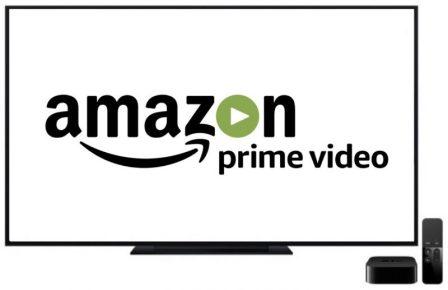Despite entering India a year after Netflix, Amazon’s Prime Video service has pipped the former.
At the end of 2017, Prime held nearly 10% of the total over-the-top (OTT) streaming market with over 610,000 subscribers, according to data shared by London-based IHS Markit with Quartz. In comparison, Netflix, which launched its video service in India in December 2016, controlled only around 8% of the market.

“India accounted for the highest number of Prime members in a debut year, growing the fastest among the 16 countries where Amazon Prime is available,” Vijay Subramaniam, director of content at Amazon Prime Video India, told Quartz.
In a price-sensitive country, Amazon gives users more bang for the buck, experts said. Netflix’s cheapest package costs Rs500 ($7.78) a month. Prime’s annual membership, was initially offered at Rs499, but the price was recently hiked to Rs999.
“Although (the price) has now doubled…it is still a significant discount, considering a service that offers more than just online video,” an IHS Markit spokesperson told the Times of India, referring to the free one-or two-day shipping offered under Prime for various items sold on the site.
But there are also other reasons for Amazon’s success.
Content is King
Around 93% of the time that Indians spent on online videos, they were watching Hindi and regional language content. “The one mistake many OTT service providers make when entering India is only hosting western content, or only extending their regional offering to Bollywood movies,” said Curt Marvis, CEO and co-founder of Toronto-based QYOU Media.
So, looking at their respective catalogues, Amazon’s lead over Netflix doesn’t surprise.
“On Amazon, slightly less than 65% of the titles are English,” said Subrat Kar, CEO and co-founder of video analytics startup Vidooly. “Hindi content is around a quarter of all titles and over 10% is regional.” By comparison, three-quarters of Netflix’s content is in English. And while there is some Hindi content, regional material is next to non-existent, Kar added.
Bollywood and comedy
Moreover, Amazon has a stronger war chest ready to serve India’s Bollywood-crazy audience. The Jeff Bezos-led firm has signed deals to catalogue movies released by leading production houses including filmmaker Karan Johar’s Dharma Productions and Mukesh Bhatt’s Vishesh Films. Although Netflix did sign an impressive deal with popular actor Shahrukh Khan and firm Red Chillies Entertainment, Amazon apparently nabbed a more lucrative star: Dabangg actor Salman Khan. The e-commerce giant has gained exclusive access to air Salman’s titles before they are aired on satellite or TV channels.
Amazon has also committed $300 million for original Indian content, roping in some big Bollywood names, besides internet content space. Hindi film actors Richa Chaddha and Vivek Oberoi starred in its first original series, Inside Edge, released in July—a second season is reportedly in the works. More recently, it released the thriller Breathe, starring R Madhavan.
Netflix is barely playing catch-up.
This month, Netflix released Love Per Square Foot, its first mainstream Indian movie with an exclusive release on the online platform. Its first original India series, Anurag Kashyap-directed Sacred Games, is still in the making.
While Vir Das became the first Indian comedian to get his own Netflix special earlier this year, Amazon has already cornered exclusive specials of 14 top standup artistes of the country, from Kanan Gill to Zakir Khan to Biswa Kalyan Rath. Gursimran Khamba, a member of comedy outfit All India Bakchod (AIB), is even creating a political satire for Amazon, titled The Ministry, starring Irrfan Khan.
Timely tie-ups
Amazon is also coming up with new ways to promote itself. In January, it tied up with India’s largest telecom company, Bharti Airtel, to allow select customers to avail a free year of Amazon Prime membership. The freebie strategy won’t be enough, though. Earlier, data prices were a barrier to online streaming. Now, triggered by the entry of Reliance Jio, data costs have plumetted and online viewership is set to take off, Kar said.
In any case, competition is set to toughen. Netflix is adding more localised content even as Amazon bumped up its prices. Several newer players, too, are upping their game. For instance, there is ALTBalaji, which was launched nearly a year ago and is the brainchild of producer Ekta Kapoor and part of her two-decade old Balaji Telefilms. “If ALTBalaji continues producing high-quality programming, it may capture the entire market,” Kar said about the Balaji Telefilms subsidiary. “Kapoor knows her Indian audience.”


